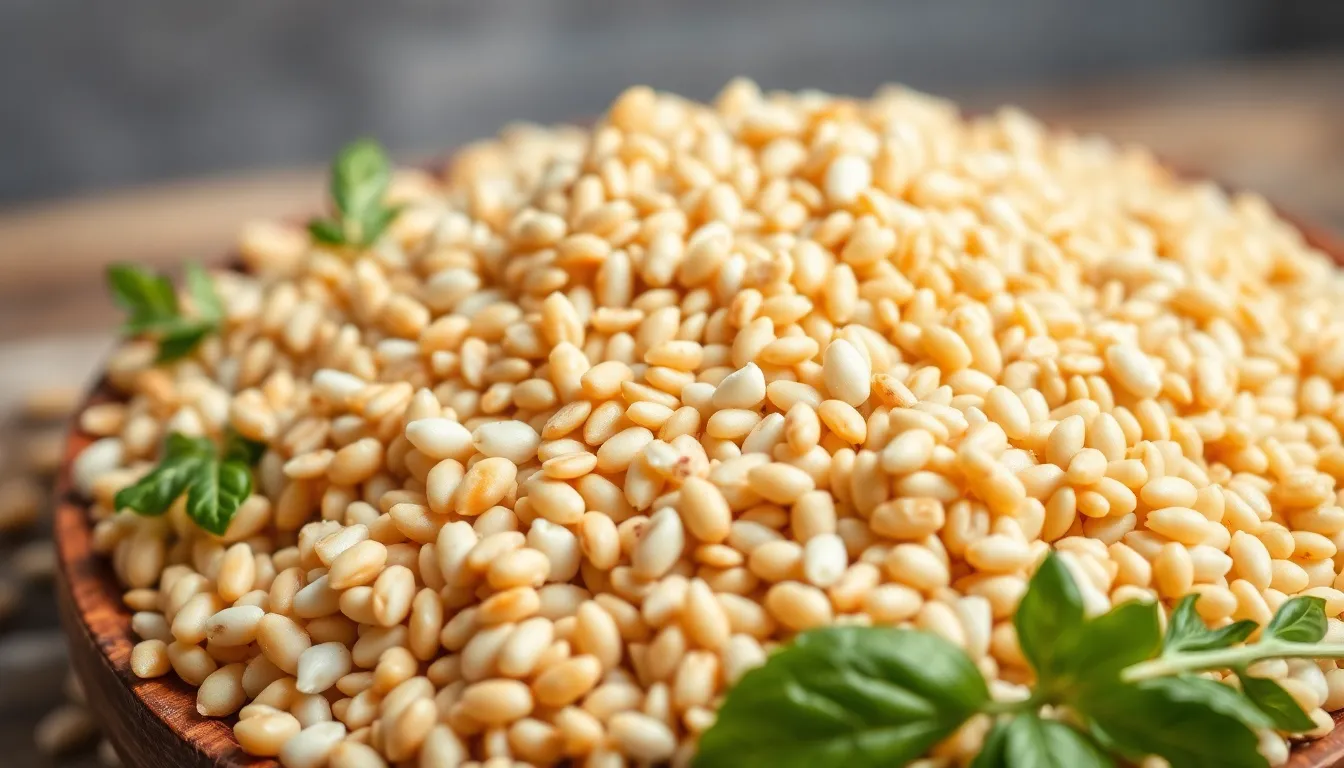The Benefits of Eating Whole Grains for Energy
I. Introduction
Whole grains have garnered significant attention in recent years, often touted as a superfood that can elevate our health and well-being. But what exactly are whole grains, and why should we incorporate them into our diets? In this article, we will delve into the benefits of whole grains, particularly focusing on their ability to enhance energy levels.
Energy is essential for daily life; it fuels our activities, supports our cognitive functions, and influences our overall mood. Finding ways to boost our energy sustainably is crucial in today’s fast-paced world. The purpose of this article is to educate readers about the myriad benefits of whole grains, not only for energy but also for overall health.
II. What Are Whole Grains?
A. Definition and examples of whole grains
Whole grains are unrefined grains that retain all parts of the grain kernel: the bran, germ, and endosperm. This means they contain all the nutrients and fiber that are often lost during the refining process. Some common examples of whole grains include:
- Brown rice
- Quinoa
- Oats
- Barley
- Whole wheat
- Millet
- Bulgur
B. Nutritional components of whole grains
Whole grains are nutrient powerhouses, packed with a variety of essential components that contribute to our health and vitality.
1. Fiber
Whole grains are rich in dietary fiber, which is crucial for digestive health. Fiber helps regulate digestion, prevents constipation, and contributes to a feeling of fullness.
2. Vitamins and minerals
Whole grains are excellent sources of vitamins and minerals, including:
- B vitamins (thiamin, niacin, and folate)
- Iron
- Magnesium
- Selenium
3. Antioxidants
Whole grains also contain antioxidants, which help combat oxidative stress in the body, potentially lowering the risk of chronic diseases.
III. The Science Behind Whole Grains and Energy
A. How whole grains impact energy levels
Whole grains play a critical role in sustaining energy levels throughout the day. They offer a variety of mechanisms that contribute to their energy-boosting properties:
1. Slow release of carbohydrates
Whole grains are complex carbohydrates that are digested slowly, providing a gradual release of glucose into the bloodstream. This slow release helps maintain steady energy levels rather than causing spikes and crashes associated with refined grains.
2. Stabilization of blood sugar levels
The fiber content in whole grains contributes to better blood sugar control. By slowing down digestion and absorption, whole grains help stabilize blood sugar levels, preventing sudden energy dips.
B. Comparison of whole grains vs. refined grains
Understanding the differences between whole grains and refined grains can significantly impact our dietary choices.
1. Nutritional differences
Refined grains undergo processing that removes the bran and germ, stripping them of vital nutrients. In contrast, whole grains retain all their natural goodness. The following table highlights the nutritional differences:
| Nutrient | Whole Grains | Refined Grains |
|---|---|---|
| Fiber | High | Low |
| Vitamins (B vitamins) | Rich | Poor |
| Minerals (Iron, Magnesium) | High | Low |
| Antioxidants | Present | Absent |
2. Effects on energy levels
Studies have shown that diets rich in whole grains are associated with lower incidences of fatigue and higher energy levels compared to diets heavy in refined grains. This is due to the more balanced energy release from whole grains.
IV. Health Benefits of Whole Grains
A. Improved digestion
The high fiber content in whole grains promotes healthy digestion by facilitating bowel movements and preventing constipation. This can lead to a more efficient digestive system, allowing the body to absorb nutrients more effectively.
B. Reduced risk of chronic diseases
Incorporating whole grains into your diet can significantly lower the risk of several chronic diseases:
1. Heart disease
Whole grains are known to reduce cholesterol levels, lower blood pressure, and improve overall heart health.
2. Diabetes
Regular consumption of whole grains can help reduce the risk of type 2 diabetes by improving insulin sensitivity and regulating blood sugar levels.
C. Weight management and satiety
Whole grains promote feelings of fullness, which can help with weight management. The combination of fiber and protein in whole grains helps control appetite and reduce overall calorie intake.
V. Incorporating Whole Grains into Your Diet
A. Easy ways to add whole grains to meals
Integrating whole grains into your meals doesn’t have to be complicated. Here are some easy ideas:
1. Breakfast ideas
- Start your day with a warm bowl of oatmeal topped with fresh fruits and nuts.
- Try whole grain toast with avocado or nut butter for a filling breakfast.
2. Lunch options
- Quinoa salads with plenty of colorful vegetables and a light dressing make a nutritious lunch.
- Whole grain wraps filled with lean protein and greens are both satisfying and healthy.
3. Dinner suggestions
- Brown rice or wild rice can serve as a hearty base for stir-fry dishes.
- Whole grain pasta tossed with olive oil, garlic, and seasonal veggies is a delicious dinner option.
B. Tips for cooking with whole grains
1. Soaking and cooking times
Many whole grains benefit from soaking before cooking, which can reduce cooking time and improve digestibility. For example, soak brown rice for a few hours before cooking to achieve a fluffier texture.
2. Flavor pairings and recipes
Whole grains can be paired with a variety of ingredients to enhance their flavor. Here are a few ideas:
- Pair quinoa with black beans, lime, and cilantro for a refreshing salad.
- Cook bulgur with vegetable broth and toss with roasted vegetables for a flavorful side dish.
VI. Personal Success Stories
A. Testimonials from individuals who switched to whole grains
Many people have experienced significant health improvements after switching to whole grains. Here are a few testimonials:
- After incorporating more whole grains into my diet, I noticed a remarkable boost in my energy levels. I no longer feel sluggish after meals! – Sarah, 34
- I switched from white rice to brown rice and found that I feel fuller for longer, which has helped me maintain a healthy weight. – Mark, 29
B. Impact on energy levels and overall health
Individuals who make the switch often report not only increased energy but also improvements in overall health markers, such as blood pressure and cholesterol levels.
VII. Conclusion
In summary, whole grains are more than just a trendy health food—they are essential for maintaining energy levels and promoting overall health. By understanding the benefits of whole grains, incorporating them into your diet can lead to improved energy, better digestion, and a lower risk of chronic diseases. Embrace the power of whole grains and let them fuel your daily adventures!




